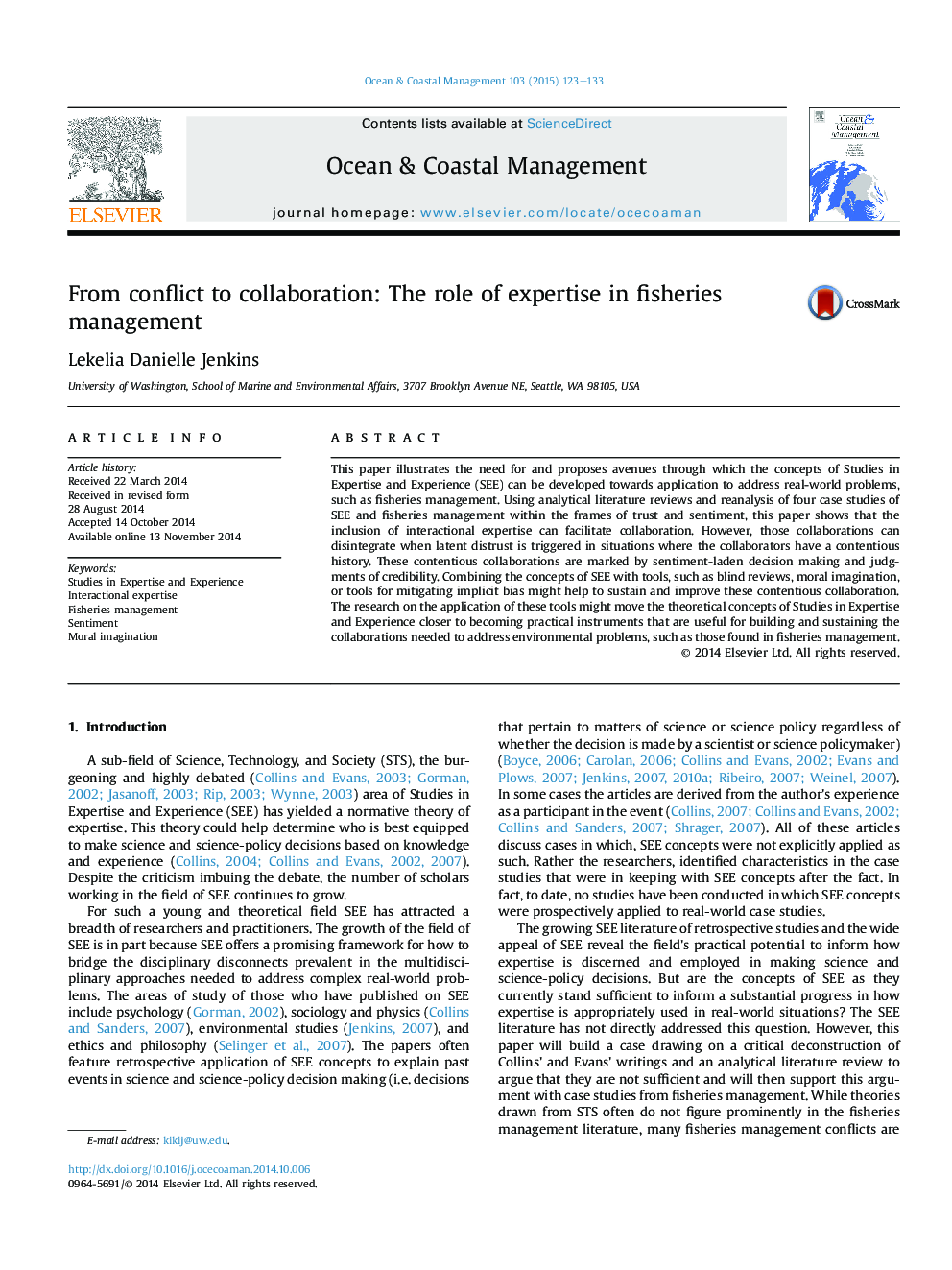| Article ID | Journal | Published Year | Pages | File Type |
|---|---|---|---|---|
| 1723554 | Ocean & Coastal Management | 2015 | 11 Pages |
•Interactional expertise can facilitate collaboration in fisheries management.•Sentiment can cause collaborations that have interactional expertise to fail.•Combining interactional expertise and moral imagination might sustain collaboration.
This paper illustrates the need for and proposes avenues through which the concepts of Studies in Expertise and Experience (SEE) can be developed towards application to address real-world problems, such as fisheries management. Using analytical literature reviews and reanalysis of four case studies of SEE and fisheries management within the frames of trust and sentiment, this paper shows that the inclusion of interactional expertise can facilitate collaboration. However, those collaborations can disintegrate when latent distrust is triggered in situations where the collaborators have a contentious history. These contentious collaborations are marked by sentiment-laden decision making and judgments of credibility. Combining the concepts of SEE with tools, such as blind reviews, moral imagination, or tools for mitigating implicit bias might help to sustain and improve these contentious collaboration. The research on the application of these tools might move the theoretical concepts of Studies in Expertise and Experience closer to becoming practical instruments that are useful for building and sustaining the collaborations needed to address environmental problems, such as those found in fisheries management.
